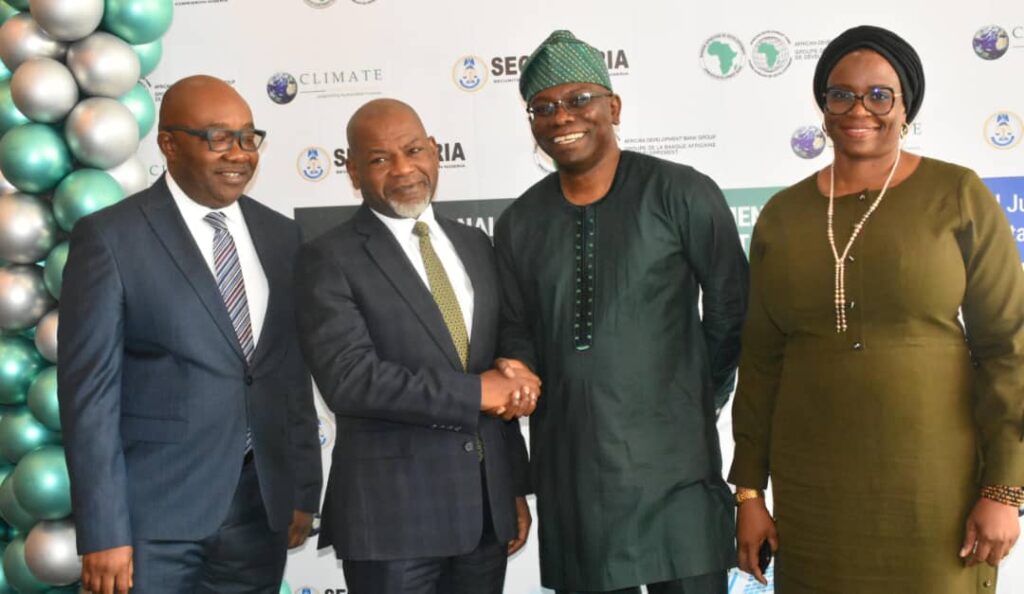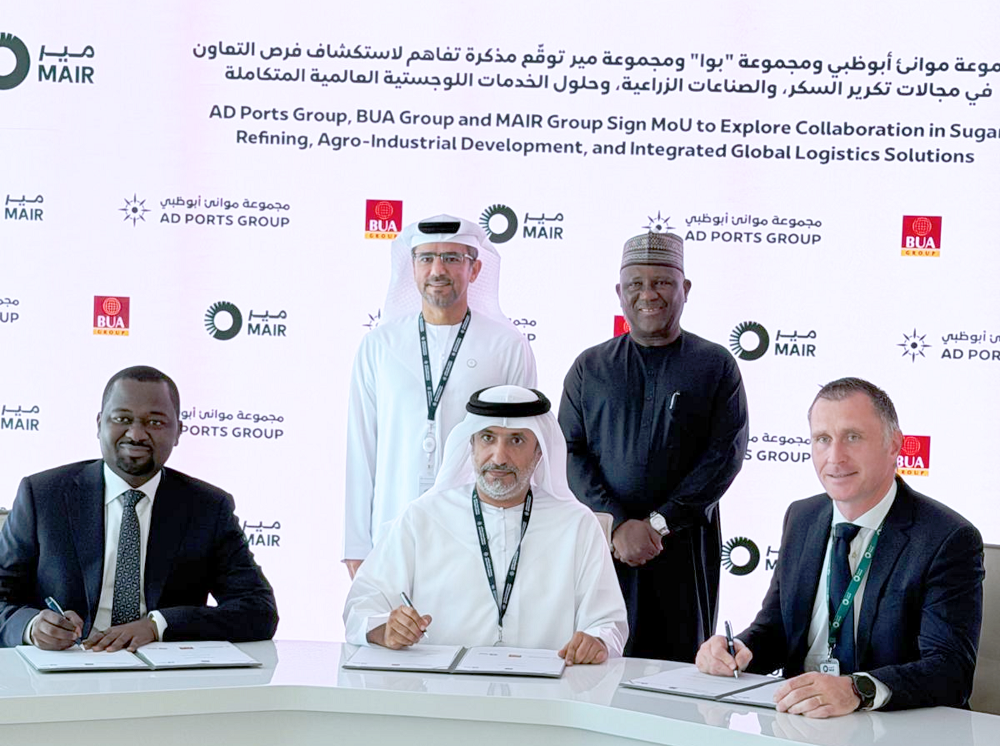
Caption: From left, Deputy Director, Securities and Exchange Commission, John Briggs; Executive Commissioner, Operations, SEC, Bola Ajomale; Executive Director, Climate Transition Limited, Olumide Lala; and Director, SEC, Mrs. Hafsat Rufai during Institutional Capacity Development on Green Finance for Capital Market Operators in Lagos Tuesday.
The Director General of the Securities and Exchange Commission Dr. Emomotimi Agama, on Tuesday in Lagos, challenged stakeholders including stakeholders, intermediaries, issuers, investors, and regulators in the Nigerian capital market to take advantage of the enormous resources and potentials in sustainable finance to build a green climate resilient economy in the country, while creating greater prosperity for investors and citizens.
Speaking at a capacity building workshop for capital market operators on Green Finance, as part of an ongoing capacity building initiative administered by the African Development Bank Group and financed by the Capital Market Development Trust Fund (CMDTF) of the bank, Agama assured that the Commission is steadfast in its commitment to champion sustainable finance initiatives.
Represented by Executive Commissioner Operations at the commission, Bola Ajomale, he noted that the Rules on Green Bonds have already facilitated a couple of sovereign issues and multiple corporate issues.
According to him, “the Federal Government, through the Debt Management Office (DMO), has led the way in Africa in this regard by issuing the first sovereign green bond in December 2017. It has since followed up with another N15bn issuance in June 2019 specifically to fund renewable energy, afforestation and transportation.
“The Commission also approved two green bond issues by North South Power Services Ltd and Access Bank Plc worth N8.56bn and N15bn respectively to finance various infrastructural projects in the power, water and agriculture sectors of the Nigerian economy. The onus therefore lies with all of us distinguished ladies and gentlemen to continue to expand these issuances by locating a need and fashioning appropriate sustainable financing products to meet them.
The SEC DG assured that the Commission continues to strongly support and champion efforts to deliver coordinated and coherent policy advice, capacity building and regulatory support to leverage actions across a broad spectrum of sectors to build the momentum for a green economy, which could bring socially inclusive and environmentally sound economic transformation.
Agama said the workshop presents an opportunity to stakeholders in the capital market to enrich the discussion on Green Finance and more importantly, take concerted action on issues relating to climate change and sustainability.
According to him, “the United Nations Environment Program (UNEP) defines a green economy as low carbon, resource efficient and socially inclusive economy. An economy where growth in employment and income are driven by public and private investment into such economic activities, infrastructure and assets that allow reduced carbon emissions and pollution, enhanced energy resource efficiency, and prevention of loss biodiversity and ecosystem services.
“Climate change, as we all know, is one of the major risks threatening the well-being of mankind. Since the Paris Agreement was reached in December 2015, international efforts in combating climate change have gathered enormous momentum. According to the IMF, in the past four decades, we have witnessed the warmest years on record and the number of natural disasters more than doubled in that same time frame,” he stressed.
Embracing green finance, the SEC DG said, remains a critical approach to addressing these challenges adding that it is crucial to involve key stakeholders in conversations that promote green finance.
“We are at a pivotal moment where we can shape the future of our investment practices to align with environmental, social, and governance (ESG) principles. Transitioning to a green economy is crucial for the sustainable development of Nigeria.
“The primary objective of the workshop is to provide capacity building for capital market operators and stakeholders to enhance knowledge and understanding of green finance, promote collaboration and networking among stakeholders, support regulatory compliance with SEC Rules, and facilitate the funding of innovative, environmentally friendly projects that will drive sustainable economic growth,” he added.
He expressed excitement at the promising trend of sustainability-themed funds gaining prominence, especially in developed countries, saying this reflects a growing global adoption of green finance criteria within the investment community, and notably, green finance performance has shown a strong correlation with overall financial performance.
Agama urged stakeholders, intermediaries, issuers, investors, and regulators, to support this transition through their business activities by directing financial flows towards more sustainable and climate-friendly solutions, divesting from unsustainable practices, setting standards and frameworks, and integrating green finance into investment decisions and practices.
In his remarks, Executive Director, Climate Transition Limited, Olumide Lala said that Climate change is real adding that the transition to a green economy is essential for Nigeria’s sustainable development, and green finance is a critical component of this transition.
“It is not just about the impact on a world that is far from us, it is here with us. The message today is for us to invest in assets, infrastructure assets that are climate efficient.
“If you look around today, the impact of climate is upon us, it’s affecting our food security, it’s affecting our way of life. It is even affecting our country’s security as people are moving from place to place in search of a better life” he stated.
Lala said the desertification of the Sahara is impeding the world, as people are moving towards the south, water resources is being compromised and there is climate risk associated with the financial investments people make.
“There is the need to reduce emission, essentially the message today is change. The regulator is here trying to reassure investors that the governance structure is there to ensure the safety of the money they are investing. The governance structure is constantly being enhanced in line with global values.
“We see this as a market development opportunity to educate the market on the benefits as well as the risks. But more importantly, how do you change the risks into opportunities? As the market changes and as we develope more opportunities for those coming behind us,” he added.














